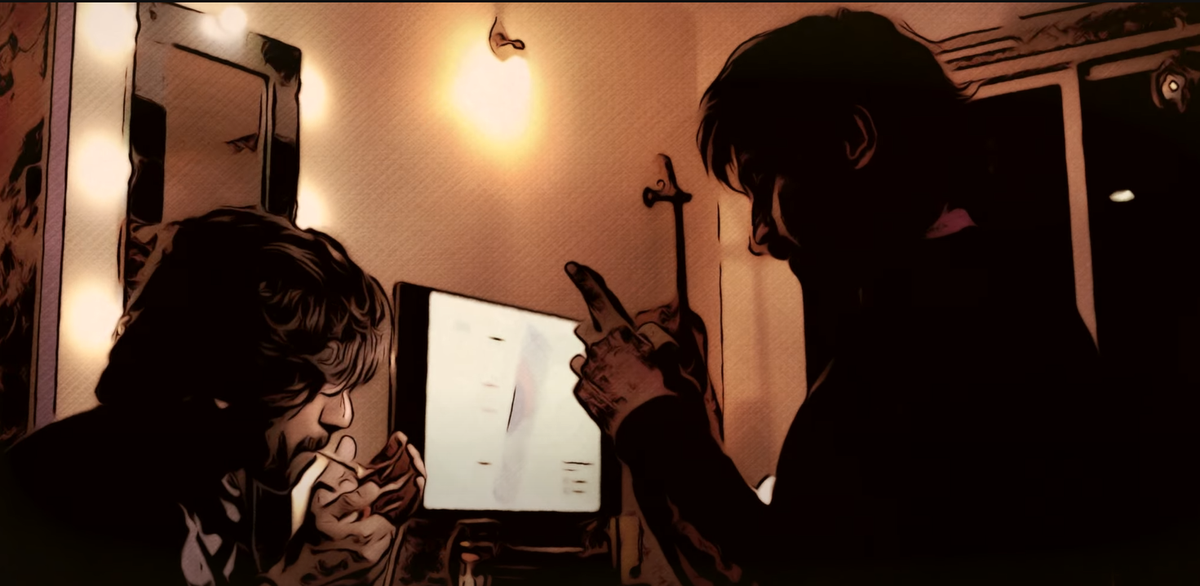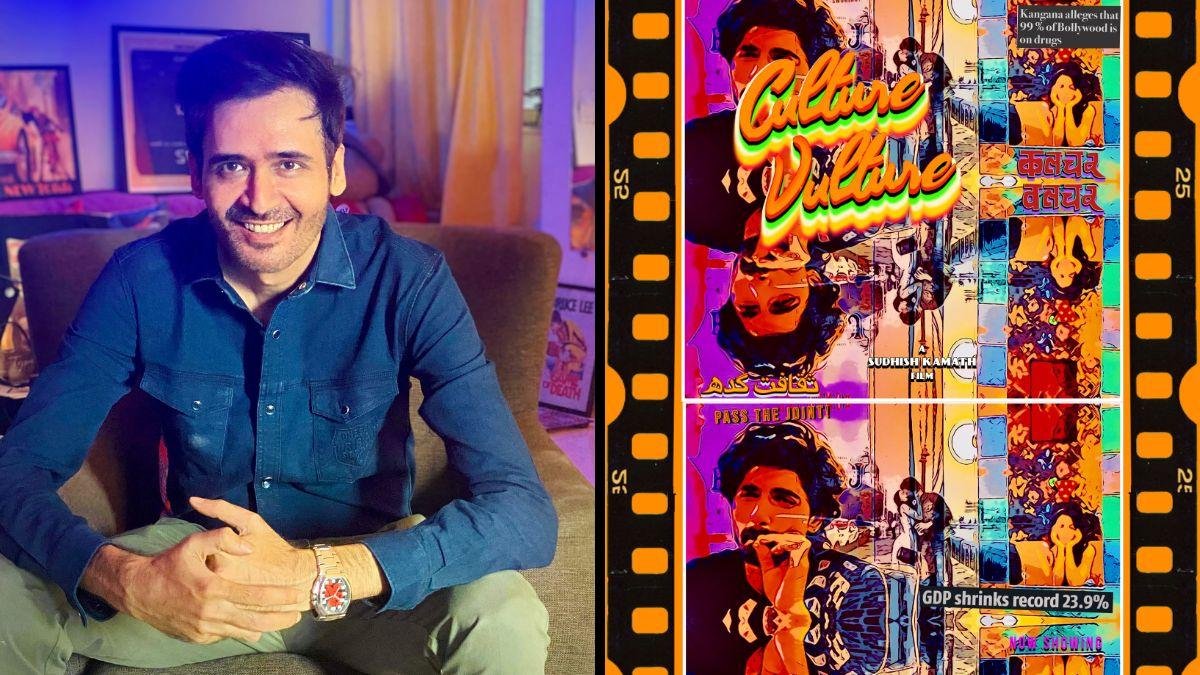Sudhish Kamath cuts a curious figure in Indian independent cinema. His chatty, self-referential films are rarely arthouse events. Rather, he makes quick, quirky, low-budget movies in the tradition of the early mumblecores. Sudhish, a former film critic, writes, directs and self-finances his films. But after over a decade of toughing it out all by himself, on the fringes of an indifferent industry, he’s ready to hang up his boots.
Last year, Sudhish announced his newest film — Culture Vulture, a stoner comedy that satirises a supine media and entertainment world — as the last he’ll independently direct. His rationale is straightforward and hard to rebut; years of self-producing his movies have left him drained and exhausted, both financially and spiritually.
“I’m done, man,” Sudhish says with candid finality. “I kept pouring my own money into movies thinking I was pursuing art. I was living out of a suitcase to fund my last film. But then my friends told me, it’s become almost like a gambling habit. I had to understand and draw the line.”

A still from ‘Culture Vulture’
Play it again, Sam
Culture Vulture, Sudhish’s marijuana-addled last hurrah, initially took shape as a direct sequel to his 2010 film Good Night Good Morning, a black-and-white romance about two strangers who connect on New Year’s Eve. Along with Side A Side B (2017), it rounds out his self-described ‘retro romance’ trilogy.
“We shot the earlier version of the film for three days and had already spent 15 lakhs on it. We decided to shelve it because nothing was going right on that project.” This was in December 2019; once the pandemic struck, he lost his skeletal crew including his director of photography from South Africa. With filming restrictions in place and no real budget to go on, Sudhish decided to ‘DIY’ the whole thing, investing in a modest shooting gear and handling costumes, edit, and visual effects all by himself.

He also vastly reworked the screenplay, expanding its satirical ambit. The impetus was the frenzied smear campaigns and accusations of drug use against Bollywood celebrities following the suicide of Sushant Singh Rajput (all while, as the film points out, the GDP plummeted and a conglomerate acquired stakes in a major airport).
Anav (Shaurya Tyagi), the protagonist of Culture Vulture, is a stereotypically clueless Hindi film hero, a spaced-out doofus with “no opinions” who walks into a media witchhunt when he assents to taking a drug test during an interview. To complicate matters, the headstrong journalist, Ila (Rashi Mal), turns out to be his ex.
Sudhish describes the plot as a ‘stoner Casablanca’, with nods to Ijaazat (1987) and Nayak (2001). “One of my influences was the Woody Allen comedy Play It Again, Sam (1972), in which he examines the figure of the Bogart tough guy through a man in the 1970s. Here, I wanted to do the same with the modern Indian hero.”
Culture Vulture recalls the loose, free-associating style of X: Past Is Present (2015), an experimental film Sudhish co-directed with 10 other filmmakers. There is a 25-minute stretch in this one that unfolds like a bad trip, the colours on the screen smudging over à la A Scanner Darkly (2006). The cinematic references fly thick and fast: Pineapple Express, Say Anything, Metropolis, Rang De Basanti, you name it. There are whimsical details that leap out: for instance, a Shah Rukh Khan-shaped Ganesha idol that Anav lugs around, a goofy yet touching symbol, as Sudhish says, of the bondedness of Indian culture.
“The film is set on Visarjan day in Mumbai. It’s a day of letting go. I got in touch with a murtikar (sculptor) who does Ganesha idols. We got the prop made for 10,000 bucks.”

A still from ‘Culture Vulture’
Almost Famous
Cameron Crowe, one of Sudhish’s personal heroes, makes a cameo via Zoom in Culture Vulture (there are other cameos by Nagesh Kukunoor and Suchitra Pillai). Curiously, in place of a pre-written scene, Crowe was provided questions; the veteran American director wrote the bit himself, funnily riffing on the modern-day relevance of his famous Jerry Maguire line: You complete me (“I got it from a Joni Mitchell song”).
“Crowe sweetly recorded the video and sent it to me. I was so thrilled that I didn’t have the heart to make him re-record it in 4k. Resolution, anyway, is overrated.”
Culture Vulture takes a comic view of the apathy and disorientation of the pandemic years. Sudhish says he did not wish to make light of the cost of media sensationalism during those difficult, tragic times.
“I did not want to add to that,” he explains. “Which is why I have avoided mentioning Sushant’s name or giving any more credibility to those conspiracy theories or mentioning the victims of those smear campaigns.”
Its frankly anti-establishment tone — there’s a bit about the Prime Minister’s ‘cloud cover’ remark on the Balakot airstrikes — likely ensured the film would never make it to streaming platforms (a theatrical release was even more inconceivable). Instead, Sudhish is releasing it directly on YouTube on May 16 for a limited period. “I want it to be an appointment-viewing experience. If it gets enough views through the week, I will consider bringing it back.”

Farewell, My Lovely
Professionally, Sudhish is in a better place than before. He has written two episodes of The Family Man Season 3 (Krishna D.K., one half of the Raj & DK duo, had come to a preview screening of Culture Vulture and offered him the gig). He will continue to seek out mainstream projects, a chance to expand his horizons while attaining a measure of financial security.
“Unlike in the US, we never had a proper distribution channel in India for independent films. Streamers, too, are mostly going for big-star titles and thrillers.”
He tried getting Culture Vulture into festivals, to little avail. It was perhaps too light-hearted for them, he figures. “The thing with making middle-of-the-road films is that you get left in the middle of the road,” Sudhish laughs.
Still, he looks back at his independent career with a mix of pride and relief. “It’s time for me to let go,” he says, much like Anav with his SRK Ganesha on Visarjan day.




